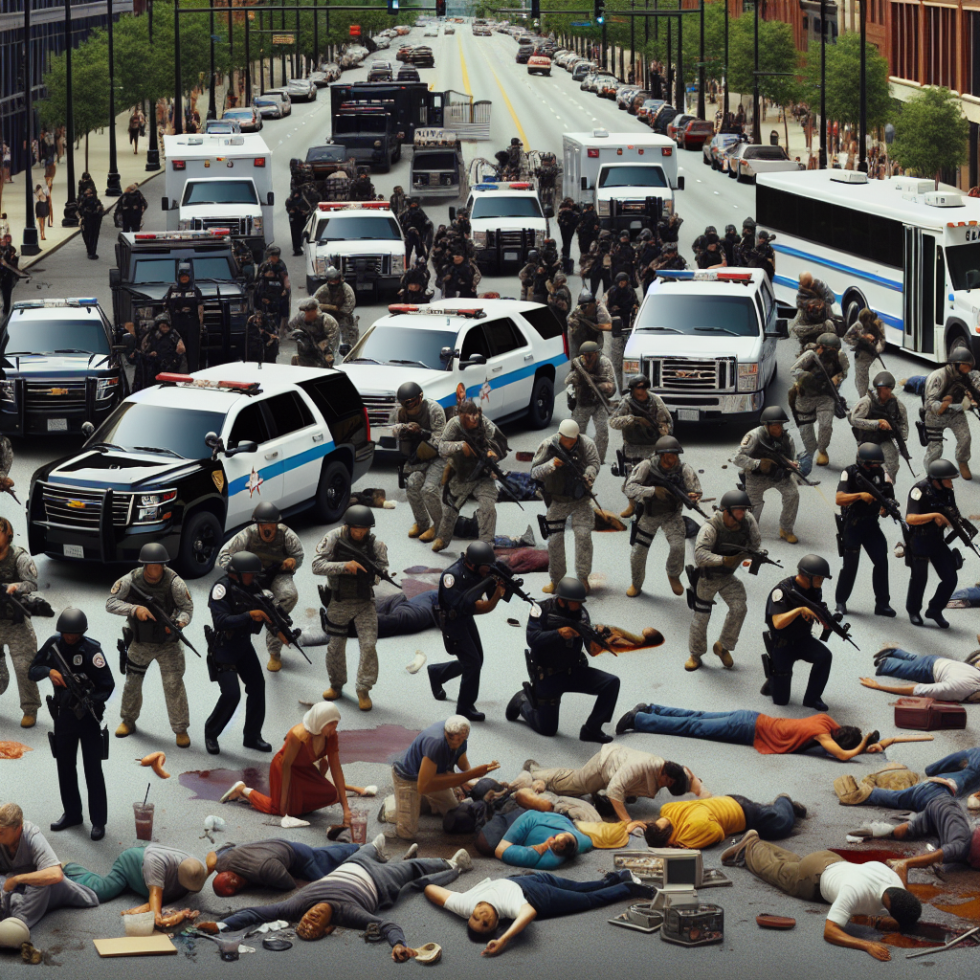
Escalation of Enforcement Actions
The Trump administration is gearing up for a significant immigration enforcement operation in Chicago, with plans to commence as soon as next week. This initiative represents a marked escalation in the ongoing tensions between President Donald Trump and the Democratic leadership of the city. The government has engaged in disputes over local policies that restrict cooperation with federal immigration agencies. Chicago, a well-known sanctuary city, has come under fire for its stance on immigration, making it a prime target for enforcement actions.
Background of Operation Plans
The proposed operation in Chicago draws inspiration from earlier efforts in Los Angeles, where the Department of Homeland Security has actively promoted aggressive immigration enforcement measures. Following a surge of migrants during the Biden administration, exacerbated by actions taken by Texas Governor Greg Abbott to transport migrants to Democratic-led cities, Chicago has seen an influx of undocumented individuals. The administration’s planned operations will utilize personnel from various federal agencies, including Immigration and Customs Enforcement (ICE) and Customs and Border Protection (CBP), and could involve a significant deployment of federal agents, along with preparation of military resources such as the National Guard.
Understanding Sanctuary Policies
Sanctuary cities like Chicago limit their cooperation with federal immigration enforcement. The political and legal implications surrounding these policies are complex. For instance, when the Trump administration previously targeted Chicago, it involved lawsuits over the city’s sanctuary policies. However, these cases faced significant legal challenges. A judge ultimately ruled that the federal government lacked standing, blocking attempts to withdraw federal funding for Chicago. This reflects the ongoing pushback from local governments against federal immigration enforcement.
Operational Preparations Underway
Current preparations for the operation in Chicago include deploying armored vehicles and increasing the number of federal agents in the area. There is speculation that challenges could arise, as discussions about using federal military resources are ongoing. These operations may be reminiscent of the deployments seen in Washington, D.C., where federal law enforcement and National Guard troops have been involved in broader crime reduction efforts. However, Chicago presents unique legal considerations that could influence the operation’s framework.
National Guard Deployment Concerns
While the National Guard’s role may mirror previous deployments in Los Angeles, legal objections could arise if the administration attempts to imitate tactics used in D.C. The distinction in military orders—Title 10 versus Title 32—plays a crucial role in determining the legality of the military’s involvement in domestic law enforcement activities. For instance, in D.C., federal authority allows for different operational strategies compared to other states like Illinois, where the Posse Comitatus Act has specific prohibitions against military involvement in civilian law enforcement activities.
Response from Local Governments
The anticipated operation has drawn fierce criticism from local officials. Illinois Governor J.B. Pritzker has vocally opposed the administration’s decision to deploy federal forces to Chicago, claiming that it undermines democratic processes and harms community relations. His remarks underscore concerns that the federal government is prioritizing militarization over collaboration with local governments, potentially exacerbating feelings of fear and insecurity among immigrant communities.
The Wider Implications of Immigration Enforcement
As the situation unfolds, it raises substantial questions about the impact of such aggressive immigration enforcement strategies on local communities. Critics argue that these actions may disproportionately affect vulnerable populations, fueling fear among undocumented immigrants and leading to community division. In contrast, supporters maintain that strong immigration enforcement is crucial for public safety and national security, pointing to statistics claiming that the administration is arresting and deporting individuals considered a threat to public safety.
Beyond Chicago: Nationwide Enforcement
The administration’s focus on Chicago is part of a broader strategy targeting sanctuary jurisdictions across the country. There are reports of plans for similar operations in other major urban centers, potentially setting the stage for nationwide enforcement actions aimed at reshaping local immigration policies. This strategic pivot raises broader questions about federal-state relations regarding immigration control and the respective responsibilities of each level of government.
Looking Ahead: A Divisive Issue
As the Trump administration prepares for this significant immigration operation, it highlights the ongoing national debate around immigration policy. The administration seeks to position itself as tough on crime while addressing concerns from constituents about immigration’s impact on community safety. In contrast, opposition voices advocate for more humane policies that prioritize integration and support for immigrants. The upcoming operation in Chicago serves as yet another flashpoint in this contentious landscape, with implications that extend far beyond the city and into the fabric of American society.
To learn about the disclaimer of liability for the content of this website, click here



